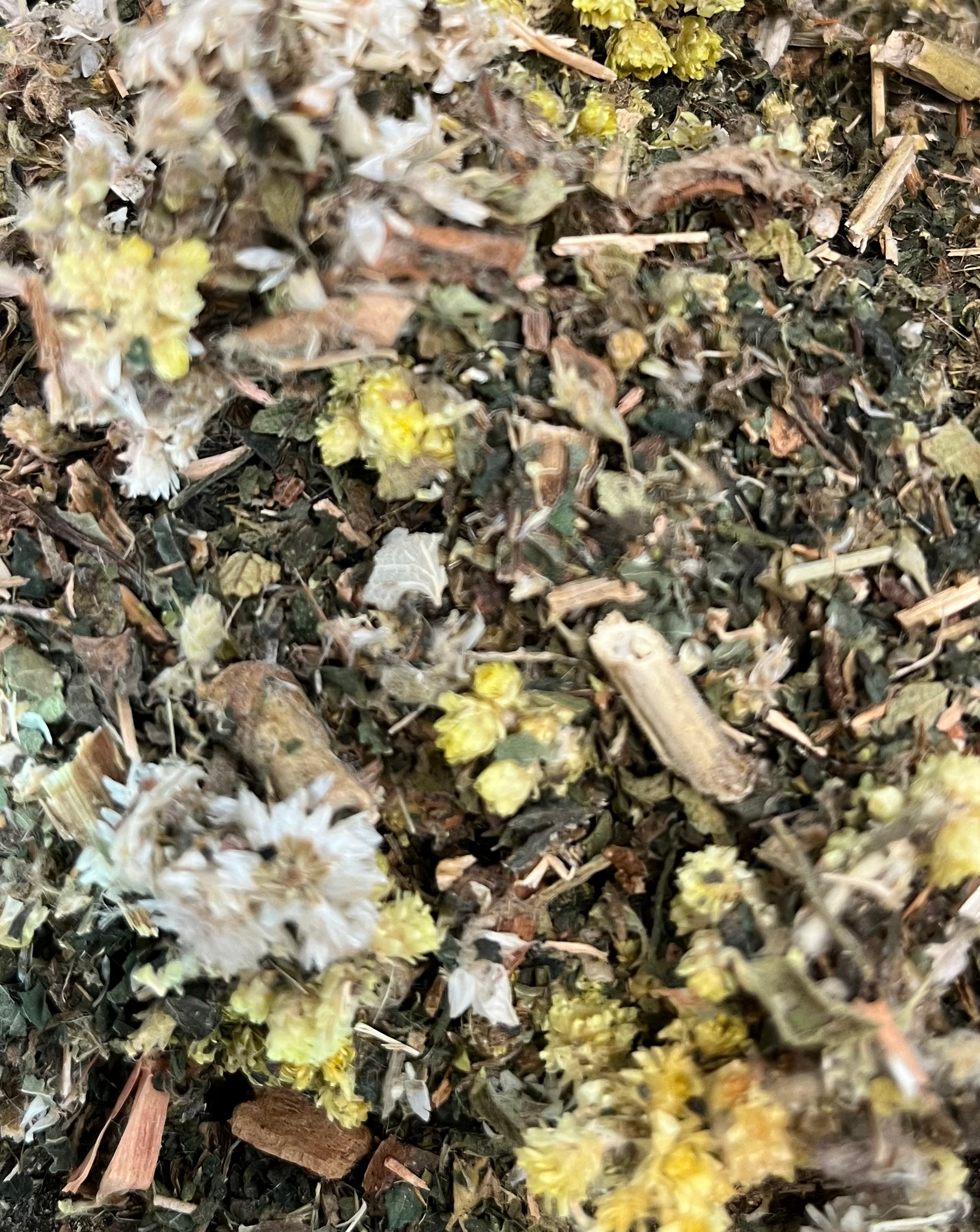Bronchitis
Our bronchitis tea is a herbal blend specifically designed to facilitate airway relaxation and alleviate congestion, making it a valuable adjunct in bronchitis management. Made with all-natural herbs, this tea is formulated to help soothe the respiratory system and provide relief from the symptoms of bronchitis.
Whether you are suffering from acute or chronic bronchitis, our tea can help to reduce inflammation and assist in clearing mucus from the airways. Enjoy a warm cup of bronchitis tea to help ease coughing, wheezing, and shortness of breath associated with bronchitis. Incorporate our bronchitis tea into your daily routine to support your body's natural ability to heal and recover from this respiratory condition.
Whats inside:
Opepe:
- Opepe contains compounds with expectorant properties, which can help loosen mucus and phlegm in the respiratory tract. This may make it easier to cough up phlegm, relieving congestion and facilitating the clearing of the airways.
Ditty of Crete:
- Ditty of Crete is rich in volatile oils, including carvacrol and thymol, which have antimicrobial and expectorant properties. These compounds may help fight respiratory infections and loosen mucus, making it easier to expel from the lungs.
African Sage:
- African Sage has anti-inflammatory properties that may help reduce inflammation in the respiratory tract associated with bronchitis. It may also have mild expectorant effects, helping to clear mucus from the airways.
Candlestick:
- Candlestick is a traditional remedy for respiratory conditions such as bronchitis. It has expectorant and demulcent properties, meaning it can help loosen mucus and soothe irritated airways. Candlestick is often used in herbal teas and tinctures to alleviate coughing and congestion.
While herbal remedies can be beneficial for managing mild bronchitis symptoms, it's important to consult with a healthcare professional for proper diagnosis and treatment, especially if you have severe or persistent symptoms. Bronchitis can sometimes develop into a more serious condition, so it's essential to seek medical attention if symptoms worsen or if you experience difficulty breathing, chest pain, or high fever.
.png)





